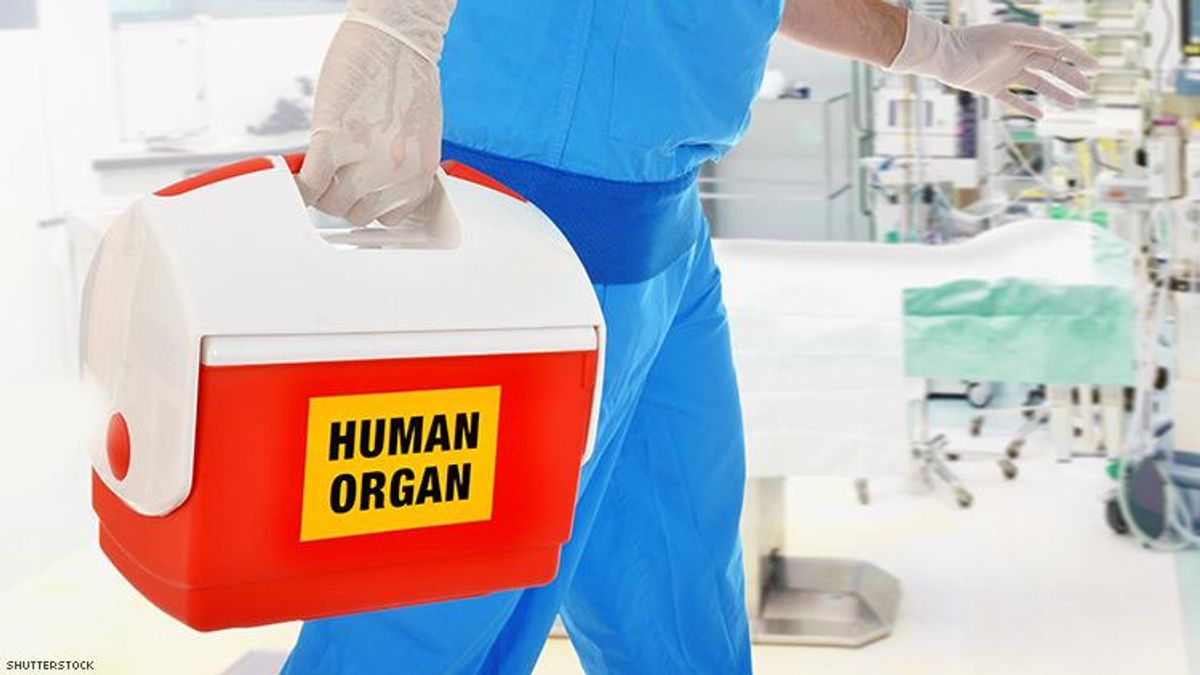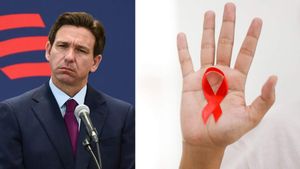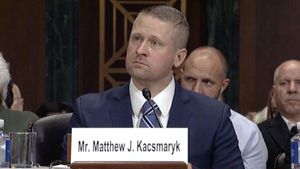The National Institutes of Health announced Monday the launch of a large scale clinical trial that will expand efforts to give more HIV positive transplant candidates new kidneys. The new study will track 160 kidney transplants.
Recipients will be monitored after surgery for signs of organ rejection, organ failure, and HIV-related complications. Half of the people who participate in the trial will receive HIV positive kidneys and half will receive virus free kidneys. This will allow doctors to more accurately predict risk after these transplants, and offer the procedure to more people with HIV on the transplant waiting list.
The trial comes on the heels of a milestone for Indiana and the country. For the first time last month, the Indiana Donor Network (IDN) recovered organs from an HIV positive donor and successfully matched a kidney and a liver to two people who needed them. Historically an HIV positive donor meant organs couldn’t be used.
HIV positive individuals for years couldn’t legally donate organs because the disease was considered devastating. That changed in 2013, when then President Barack Obama signed the HIV Organ Policy Equity (HOPE) Act into law. It acknowledges that with modern medicine people with HIV can live fairly normal lives. So this act allows HIV positive kidneys and livers to be transplanted into people who have the virus.
Obama, when he signed the HOPE Act, said, “Our country has come a long way in our understanding of HIV and in developing effective treatments.” Today people who take antiretroviral treatment for HIV can suppress the virus to a point where it’s undetectable. Last September, the Centers for Disease Control and Prevention for the first time acknowledged those who “maintain an undetectable viral load have effectively no risk of sexually transmitting the virus to an HIV-negative partner.”
It took a few years after Obama signed the act for transplants to actually happen between HIV positive people. The National Institutes of Health and Health and Human Services published safeguards and research criteria in 2015 for transplant centers willing to perform these transplants as clinical research.
Now organ procurement organizations, like IDN, can send HIV donor organs to transplant centers. Doctor Tim Taber, a transplant nephrologist at Indiana University Health, said it’s not hard to meet the requirements to procure HIV positive kidneys and livers because the safety precautions are the same whether or not there’s an infection. His protocol,“treat everybody like they have some infection from the moon that you don’t want to get.”
It’s Brianna Doby’s job to help all 58 organ procurement organizations (OPOs) across the country get on board with the HOPE Act. She’s part of a team at Johns Hopkins University that’s on call for organ recovery teams dealing with their first HIV positive donor. She says stigma still plays a role. Some OPOs worry their staff will be at risk with a known HIV positive donor even though they are trained to prevent exposure to infectious diseases.
Doby said only 16 OPOs have worked on HIV positive cases since the HOPE Act made it legal. There have been approximately 50 HIV positive kidney and liver transplants performed in the U.S., far fewer than expected.
Researchers expected a dramatic increase in the donor pool after 2013. A study published in the American Journal of Transplantation estimated between 500 and 600 HIV positive donors a year would be available for HIV positive transplant candidates.
So why aren’t there more transplants every year?
IDN’s organ services manager, Rich Amos said for starters, “statistically less than one percent of all deaths happen in a way that allow for donation to take place.” Most eligible donors die from a brain related injury. The other reason is that transplants are only allowed as clinical research between people with HIV.
Doctor Christine Durand, who leads national research on the HOPE Act with Johns Hopkins University, says there’s a lot of untapped potential. So far 24 centers meet the criteria to perform transplants between people with HIV. Among these centers, Durand said there are more than 300 patients with HIV who have agreed to accept an HIV positive organ. “We expect this number to grow significantly,” she said.
IDN doesn’t track the exact number of HIV positive organs eligible for transplant. So, it’s hard to evaluate whether there have been missed opportunities.
For the HOPE Act to fulfill its potential Doby says more donors are needed, “The HOPE Act is not widely known about and many people might just assume they can't be donors if they are also HIV positive, so they don't register,” said Doby.
For years, HIV positive recipients have been eligible to receive virus-free organs. However, Durand said, "Generally HIV transplant candidates have less access to transplant and so they face longer wait times than those who don’t have the virus, even though they have the similar survival and organ function after transplant." This is because many transplant centers say they don’t have the expertise or experience to perform these transplants. Although Durand thinks this is changing, “More and more centers are expanding their practice to offer transplants to HIV positive candidates.”
The potential is huge as more people with HIV become donors, more OPOs recover HIV positive organs and more transplant centers list their HIV positive patients. There are 468,000 Americans receiving dialysis for end stage renal disease in the U.S. According to Durand’s research, An estimated 1.5 percent live with HIV. Meanwhile about one percent of liver transplant candidates have HIV. “This means that more than 10,000 HIV positive individuals could benefit from a kidney or liver transplant,” said Durand. She hopes research trials like the one announced nationally Monday will one day expand to include hundreds of HIV positive people waiting for hearts and lungs.
This story was produced by Side Effects Public Media, a news collaborative covering public health.








































































